World Premiere
by Octavio Solis
directed by Bill Rauch
Ashland, OR
at the Oregon Shakespeare Festival
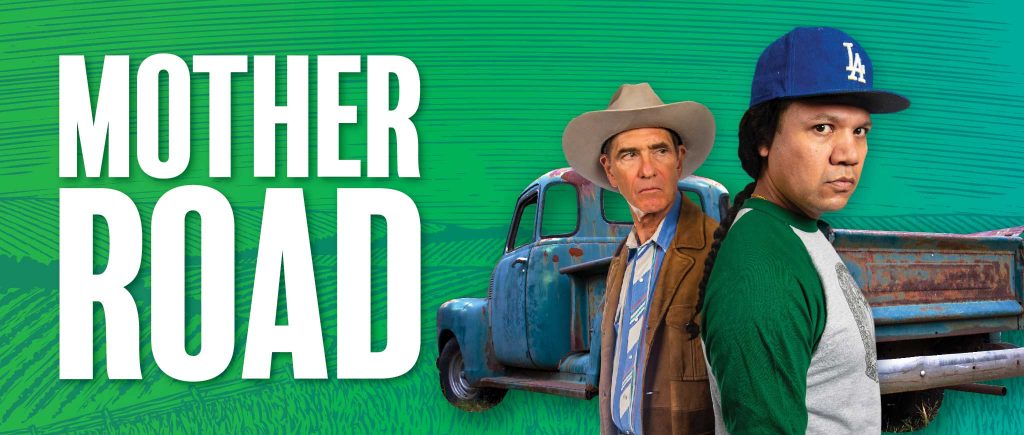
Photo by Jenny Graham Oregon Shakespeare Festival
My subconscious has delayed my writing comments about Ashland’s Mother Road. I saw it opening night in early March, but I haven’t felt like it was time to write about the play. Not when I first saw it. Not when I got back home and had a chance to think about it. Not ever.
The problem is that I want to construct an enthusiastic collection of comments that matches the applause the audience — including me — gave opening night. And, I can’t. The importance of the story, the crafts, and the acting are all wonderful. But, the sum of the parts is greater than the whole.
The play does a reverse trip across “Mother Road”, Route 66, from the one John Steinbeck wrote about in 1939. This 80-years-later family story migrates the last surviving Joad back from California to the homestead in Oklahoma.
The Last of the Joads is Martin Jodes (Tony Sancho) whose Oklahoma ancestors wound up marrying into a Hispanic family and changing the spelling of their surname.
The play starts off with the penultimate Joad, William, (Mark Murphey) arriving in California from Oklahoma to meet Martin who has been identified by William’s attorney (Jeffrey King) as the family’s only living heir. White, white William has to be reassured by his attorney that DNA itself has confirmed the certainty of brown Martin’s kinship.
William is old and ill, and had set his lawyer on the quest to find a relative so that William could fulfill his promise to his mother that he’d keep the now-considerable Oklahoma farm in the biological family. William and Martin don’t exactly hit it off, but William persuades Martin to come back to the farm so he can take it over when William dies.
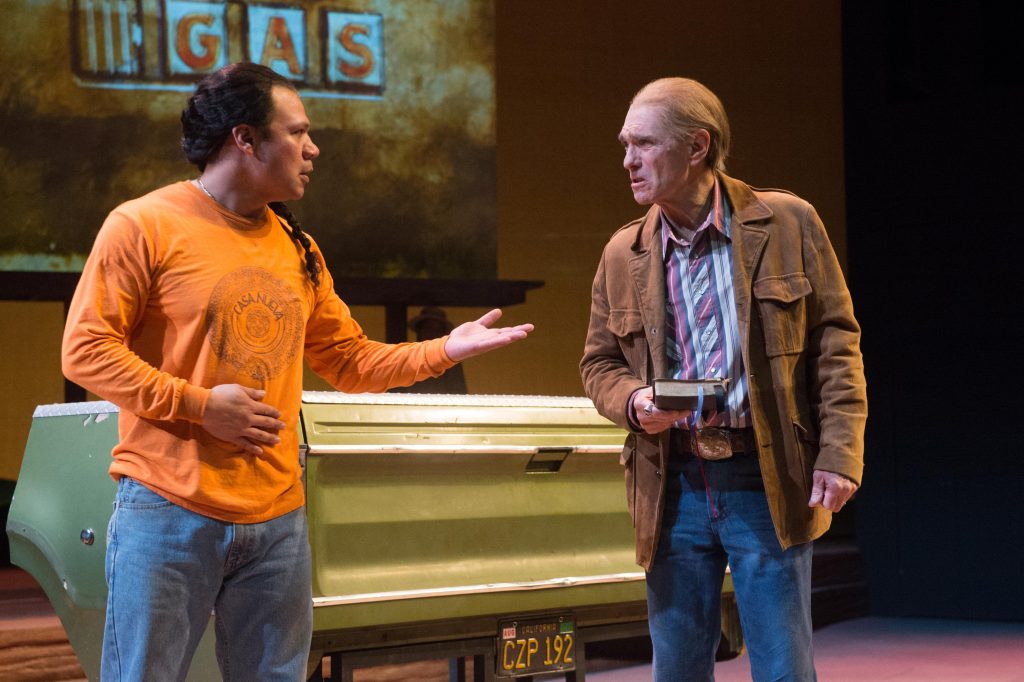
Photo by Jenny Graham Oregon Shakespeare Festival
William and Martin start driving back to Oklahoma. We spend the rest of 2 1/2+ hours learning more about our two principals, meeting important people in Martin’s and William’s lives, adding some/most of these people to the car trip, and journeying back to OK.
We are treated to some truly great scenes between Murphey and Sancho. Murphey’s cranky Okie fits, and reminded me that Murphey was also perfect as Cassius. And, as the story goes on, he mellows and deepens in front of our eyes. His flashback interaction with his mother was brilliant.
Sancho is even richer in his scenes. He not only plays off Murphey, but also shines in revelatory moments with his friends and when acting out against injustice.
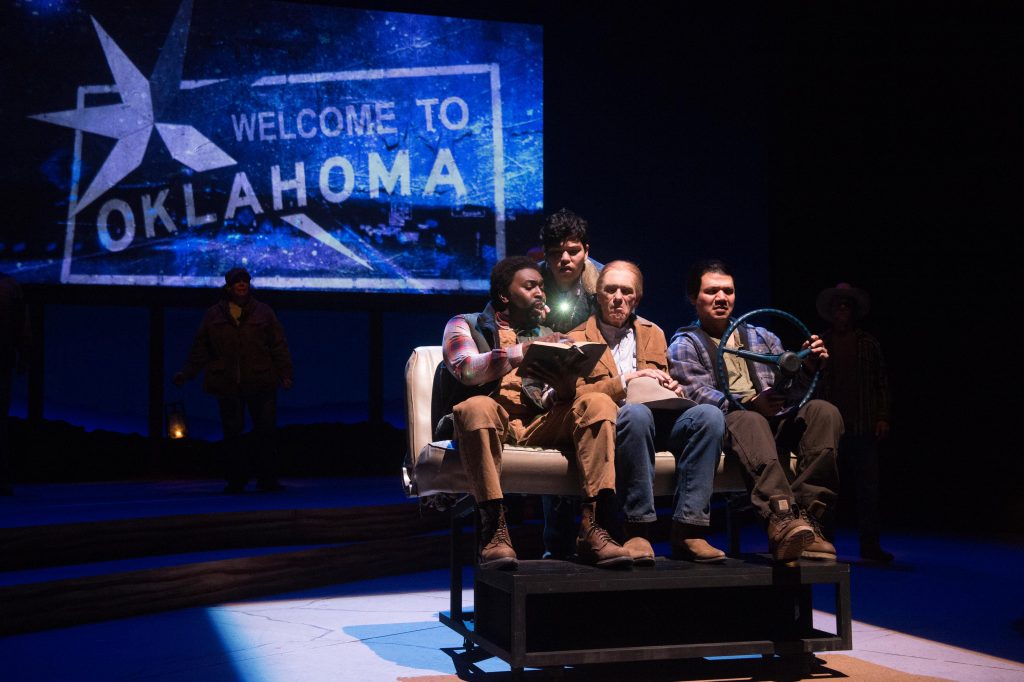
Cedric Lamar James Photo by Jenny Graham Oregon Shakespeare Festival
I feel like I should single out each actor for applause. In addition to the cast already mentioned, Cedric Lamar, Armando Durán, Catherine Castellanos, Amy Lizardo, Caro Zeller, and Fidel Gomez deserve raves. The actors were flawless.
Christopher Acebo’s set was simple, non-distracting, and appropriate. Perfect. The same kudos to Projection Designer Kaitlyn Pietras, Lighting Designer Pablo Santiago, and Composer and Sound Designer Paul James Prendergast.
All wonderful.
But, folks! There isn’t a moment when you even suspect an ending different from the one that shows up on stage.
The additional characters and stories are interesting and enriching, but not surprising or threatening or changing. If I was more literate, I suspect that some/all of them might mirror parts of Steinbeck. That would make them even more inventive/deep/something.
But, as good as the storytelling craft is — and it’s very good! — Mother Road doesn’t get me to connect. It feels a bit too structured, and a bit too pat.
Ozdachs rating:![]()

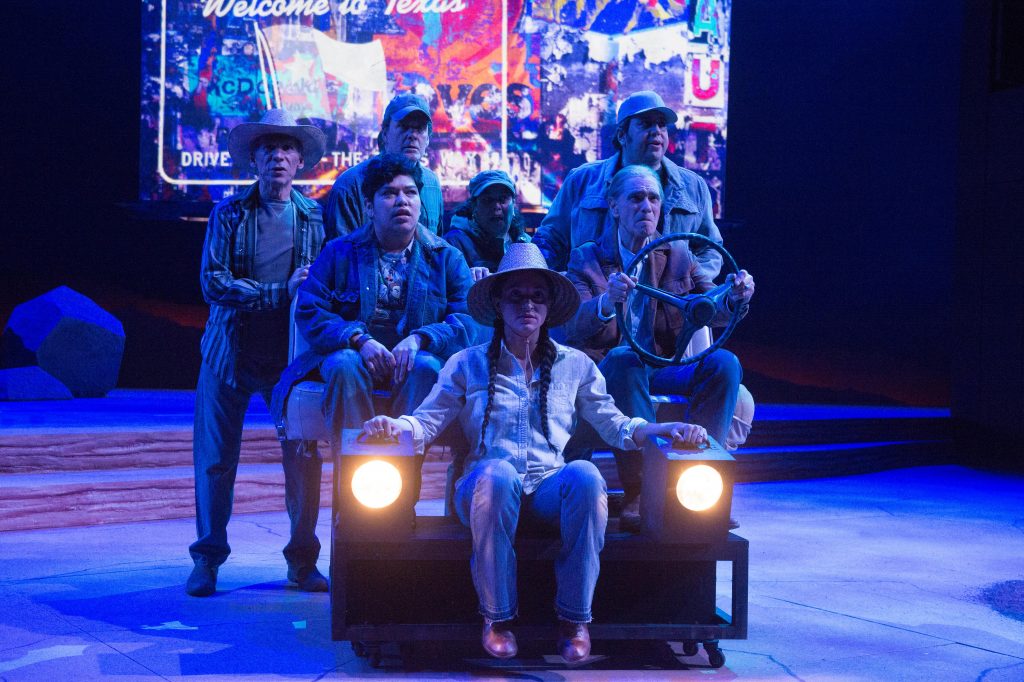
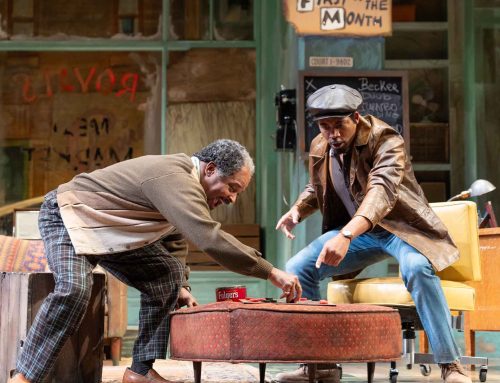
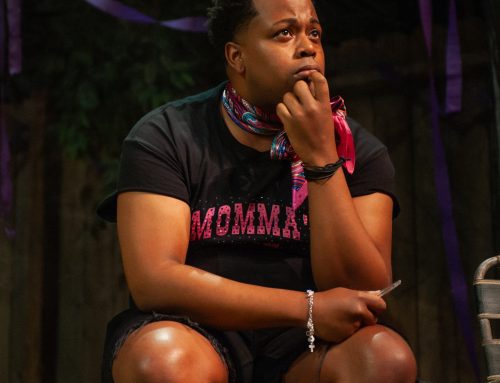

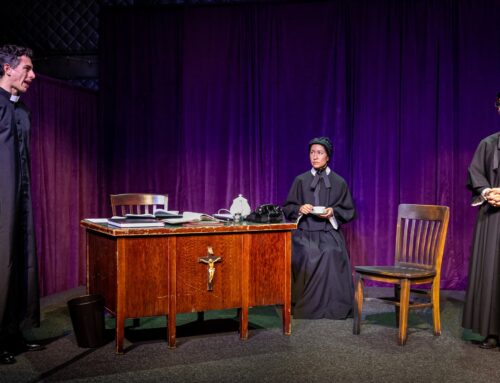
Leave A Comment